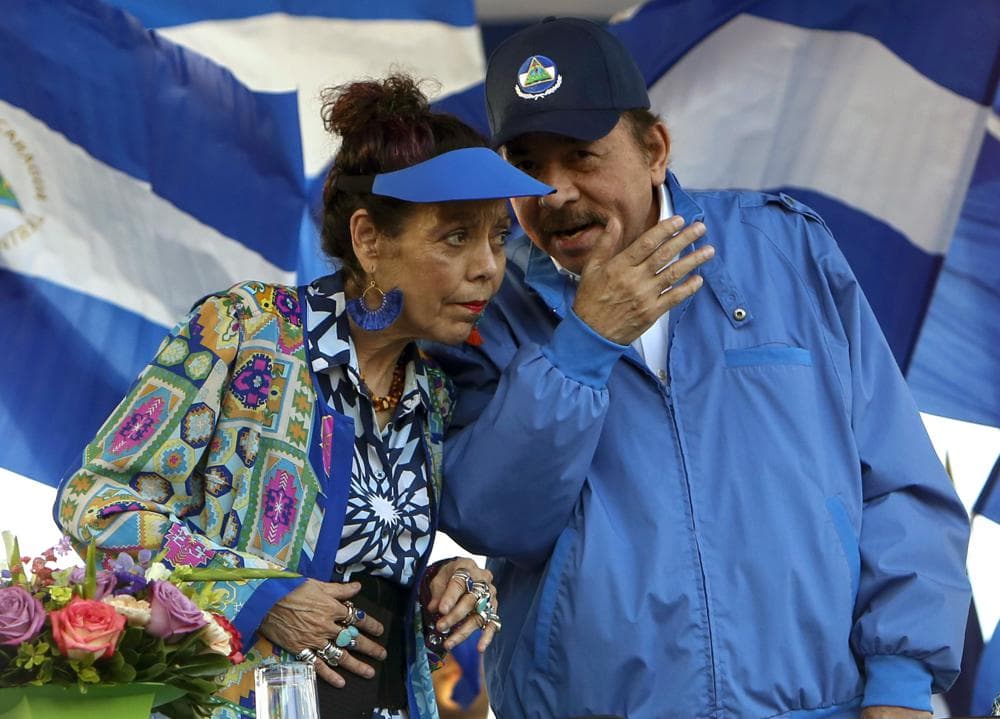ROME – With all the opposition leaders jailed and their parties banned, Daniel Ortega and his running mate – and wife – Rosario Murillo won the Nicaraguan presidential elections held on Sunday.
Only one Catholic bishop of the country’s 13 voted.
At the crack of dawn Monday, Nicaragua’s Supreme Electoral Council announced that with roughly half the ballots counted, Ortega had won with about 75 percent of votes. With this landslide victory, he secured his fourth consecutive term, not including the time he ruled the in the 1980s.
Washington had dubbed the elections a sham due to the veteran leader’s suppression of his opponents, and the European Union had called them “fake.”
In a statement issued before the tally was announced, U.S. President Joe Biden said that Ortega and his wife had orchestrated a “pantomime election that was neither free nor fair.”
RELATED: Ahead of Nov. 7 vote, Nicaraguan bishops say ‘meaning of democracy is lost’
In the weeks leading to the Nov. 7 elections, the Catholic bishops released several statements arguing that the country’s democracy was at risk because basic rights were not being respected. They also said that it was “in the conscience of each” citizens to decide if they would vote or not.
Bishop René Sándigo, of the diocese of Leon, was the only Catholic bishop to take part in the elections.
On Saturday, the day before the election, the families of some 150 political prisoners sent a letter to Pope Francis asking him to raise his voice urging for basic human rights to be respected in Nicaragua.
“We request your humanitarian intervention,” they write. “All of our family members have been detained and imprisoned without due process, as international and human rights organizations have attested.”
They also told the pontiff that an estimated 150,000 people who oppose the regime have had to flee, either to the United States or Costa Rica, and those who are still in Nicaragua have barely been able to see their imprisoned relatives, noting their “serious state of malnutrition, unhealthiness, and the lack of proper sanitation.”
“Your Holiness, this is not a political matter, but a humanitarian one,” they write. “Our families are suffering. The Church is being accosted, from priests to the hierarchy have had to hide, exile, and also fear for their lives.”
Among those who have had to leave the country is Bishop Silvio Baez, who is living in exile in Miami, after Pope Francis ordered him to leave Nicaragua because his life had been threatened.
“Today is not a day of victory for anyone in Nicaragua,” the prelate said during his homily, celebrated in Washington’s National Shrine, at the invitation of Bishop David Malloy, chairman of the U.S. bishops’ Commission for International Justice and Peace.
“Today is one more day of the painful road of tears and death that our country has lived through and that has left so many innocent victims, whom we cannot and do not want to forget,” Baez said. The Mass was televised and made available through social media.
“The whole world has its eyes on our country because of the illegitimate event that is taking place there today,” he said, referring to the presidential elections.
“Today the dark ambitions of power of those who have shattered our country and their cynical speeches with which they have tried to distort history and hide the truth seem to impose themselves. However, today is not the end of Nicaragua’s history. Today is not the end, but the beginning of a stage full of challenges and hopes, of struggles and commitments, of unity and generosity,” said Baez.
He recalled the people killed by the government’s repressive measures, those who have been forced into exile and those who “have been unjustly locked up in jail and are treated cruelly simply for wanting a better country.”
Bishops and priests are among those who are under harassment by the Ortega regime, although no bishop has yet been imprisoned.
In their public appearances this year, Ortega and Murillo have accused the bishops of being “coup perpetrators,” of being “off springs of the devil,” of being “foreign agents” and of preaching a false Christianity.
Ortega also sent the police to intimidate bishops and priests – with a police booth installed in front of the house of Cardinal Leopoldo Brenes – who has been out of the public eye since late September, recovering from COVID-19.
Though the government claims that over 70 percent of the population voted, the independent observatory Urnas Abiertas, meaning “Open Ballots,” reported that there was an 81 percent abstention rate nationwide.

Father Pedro Mendez of the diocese of Masaya, near the capital, was tortured by the government in 2018 as part of the “cleansing operation” that followed the social uprising of April of that year. In his church, with the support of his parishioners, he hung a banner saying that their “finger will remain clean,” because they will not be staining it to confirm they voted, as Nicaraguans have to do.
The parish would not be voting because “the Church is persecuted,” because “bishops and priests are not the off springs of the devil, nor coup organizers nor terrorists,” for those who are “imprisoned, exiled and unemployed,” and for those “who have died asking for freedom.”
Follow Inés San Martín on Twitter: @inesanma













